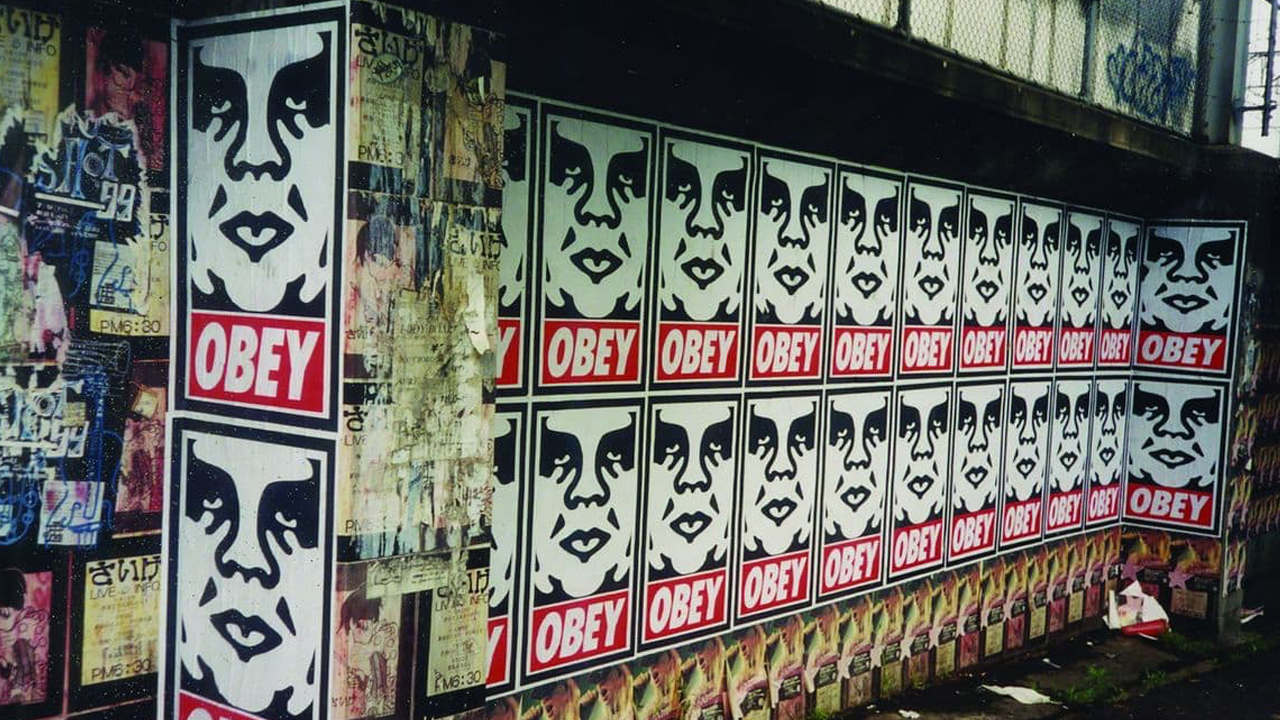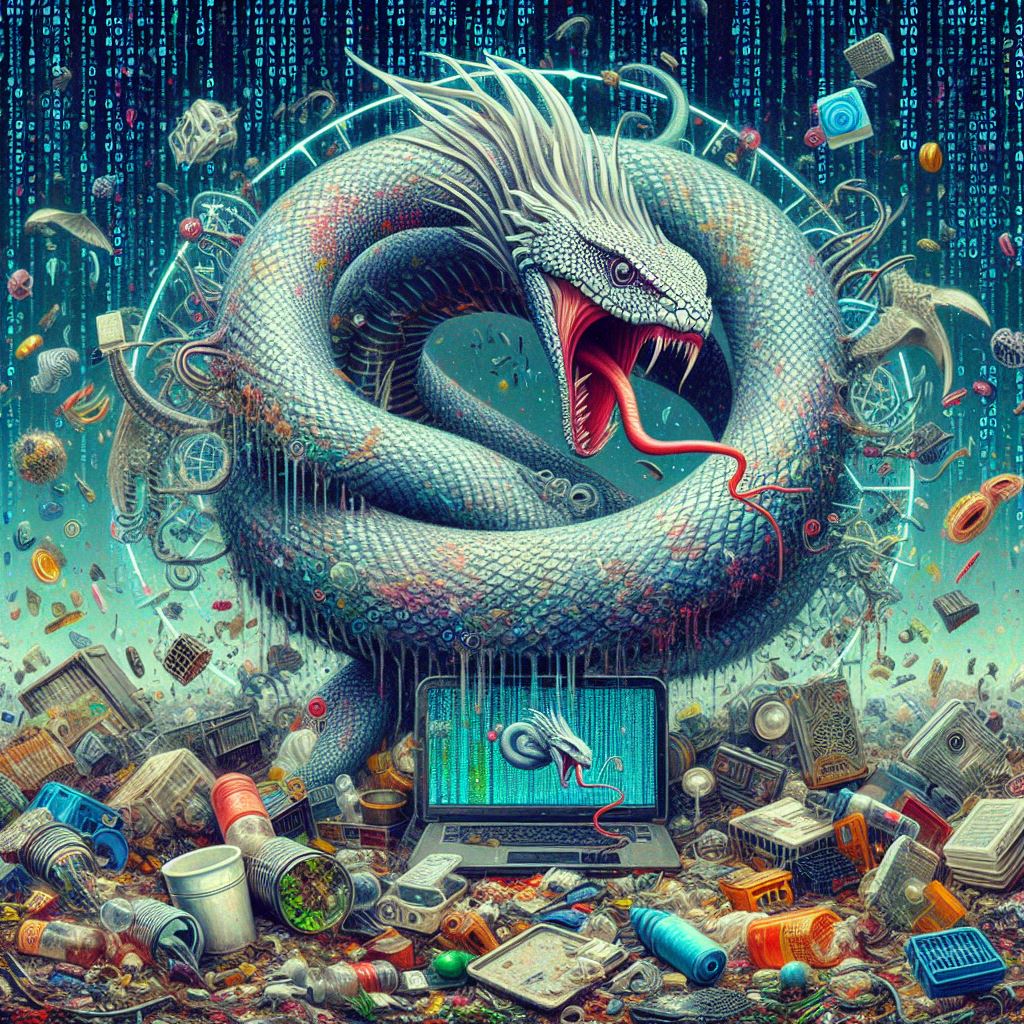How we are usually in the world can be explained in terms of ‘only the one possibility’. We only have the one possibility and we embody this one possibility in everything we do. The one possibility that we have is ‘the possibility of carrying on doing everything the way we always have done’. It is ‘the possibility of seeing things and understanding things in exactly the same way that we always seen and understood them’. We only have one possibility and this is the possibility of continuing on in the way that we already are continuing on – the possibility of continuing as usual with our routines, our habits, our established way of being in the world.
Having only the one possibility is of course the same thing as having no freedom. We have the freedom to do what we are compelled to do, we have the freedom to do what we are inevitably bound to do. We have the freedom to do what we feel we have to do. We have the freedom to carry on being unfree. We don’t usually see it like this because our horizons are every bit as narrow as our habitual patterns of thinking and behaving. Having only the one possibility is therefore an invisible restriction. After all, in order to see that we are restricted we would first have to have at least one other possibility open to us, one other possible way of seeing things. In order to see that we are unfree we would have to have at least some perspective. Without any perspective at all, the idea of perspective itself is meaningless.
The normal way of things therefore is that our restrictedness is not perceptible to us as such. We see the world in a ‘black-and-white’ sort of a way – we have narrow opinions, narrow ideas, narrow thoughts and so the whole world is divided into what we see as ‘the right way for things to be’ and what we see as ‘the wrong way for things to be’. This is not a fifty-fifty split however because there are many, many ways for things to be wrong, and only one way for them to be right. The ‘right way’ is after all a very narrow way – it is as narrow as I am! The dreadfully prejudicial narrowness of my outlook and my thinking is therefore ‘the invisible restriction’. It is the restrictedness that I am so painfully and miserably afflicted with, and yet instead of seeing it as such I actually feel a sense of loyalty or allegiance to it, as if it were not a wretchedly miserable and pain-producing sort of a thing. I experience having a sense of duty towards it – I will sacrifice myself on its behalf. Perversely therefore, I end up protecting the restrictive pattern, standing up for it, excusing it, perpetuating and even actively promoting it.
When I get things to be the way I want them to be, or when I successfully manage to express or articulate my narrow opinions, then I feel what can be a fierce sense of satisfaction. I feel intense pleasure and satisfaction as I express my inner restrictedness and so as far as I am concerned it is not restriction at all but personal vindication. This personal vindication is a very sweet nectar for me. I could drink it all day! When the specific pattern of my inner restrictions is reflected (or ‘manifested’) in the outside world this does not seem like a misfortune to me – which is what it is – but rather I experience an intense sense of personal validation out of it and this sense of personal validation makes me feel very good. It is like a drug that I am addicted to, and must continually have more of. My over-all aim in life therefore becomes to continually have more validation, which means that I must work as hard as I can to get things to be ‘the way that I think they ought to be’ (which is generally known as ‘being in control’), or that I should work as hard as I can to get other people to agree with me and have the same narrow outlook on life that I do (which is of course also all about ‘being in control’). Control is therefore both how we instigate or enact our inner restrictedness, and the way in which we obtain the intensely-desired euphoria-producing drug of personal validation.
On the other hand, when I do not get this validation I feel very bad. When people disagree with what I see as being right, or when things happen to me that do not seem right to me, then I become upset and distressed, and so my motivation when this happens is to work hard to control what is happening around me (or control how the people around me think or perceive things) so that I won’t feel so very bad. Just as the split between ‘things being the right way’ and ‘things being the wrong way’ is not a fifty-fifty sort of thing, the split between the amount of time in which I feel validated and the amount of time in which I don’t feel validated is not fifty-fifty either. There are many more ways for things to go wrong than go right, and there are many more ways for people to disagree with my views than there are for them to agree with them, and so the chances are that – if I do have only the one (narrow) way of seeing the world – then most of the time I am not going to be a particularly happy bunny. I’m actually going to be a chronically miserable bunny…
Being narrow inevitably means that life is sooner or later going to end up ‘not agreeing with me’ – life, after all, is not narrow but very broad! I might start out thinking that life is going to be all about the validation of my ideas and goals but this unfortunate misapprehension will in all probability soon be knocked out of me. I am going to experience the fierce pleasure of personal vindication only from time to time, and the equally fierce pangs of frustration and dissatisfaction, disillusionment and loss much more frequently. I will sooner or later end up as a ‘non-validated person’ – a person who wants very badly (maybe on an unconscious level) to be validated but cannot obtain this much sought-after drug.
What is more, as a result of my ‘inverted perception’ of what is going on I see the pain that I am in as being the fault of things or people for not being the way they should be. As a result of having such a wretchedly narrow outlook on life I feel disgruntled, aggrieved, angry, fed-up and unhappy for a lot of the time but rather than relating this misery to my narrow way of understanding the world I relate it to the fact that ‘nothing is ever right’. I relate it to the wrongness of the people around me, or perhaps the wrongness of the world in general, and so I get to feel even more disgruntled and fed-up, even more angry and unhappy. Or instead of throwing the blame outwards onto the world (or onto other people) I might direct it inwardly. I might take the blame onto myself and see the pain that I am experiencing as being due to my unforgivable failure to ‘make the grade’.
The only way I am going to be happy most of time (‘happy’ in the narrow sense of being personally vindicated!) is if I am unusually good at controlling – and then in that case I will simply be making other people unhappy instead! Restriction is always going to be causing suffering somewhere or other and so one way I can avoid feeling bad myself is if I put the hurt on someone else instead of me. In this case I can’t of course allow myself to see that this is what I am doing because that would then make me feel bad (which is exactly what I want to avoid) so I tell myself that I am actually doing them a favour. I am – after all – teaching them the right way to be, and so naturally I think that what I am doing is actually a good thing. I am ‘doing the right thing’ because I am ‘passing on the right way’.
Thus, when we ‘pass on our pain’ by getting everyone else to be as restricted in their thinking as we are, we generally tend to feel proud of ourselves. We experience the addictively euphoric feeling of personal validation. This whole business of passing on restriction (and passing on the misery that it causes) we dignify by such terms as ‘education’ and ‘socialization’. What we call culture is no more than making a virtue of our particular collective style of inner restriction – something that ought to be passed on to future generations because it is of so much value. We pass on the sickness of restriction because we ourselves have been infected with it. We perpetuate the pattern because – having been educated or socialized ourselves – we are incapable of doing anything else. We certainly don’t see what we are doing as ‘infecting other people with our sickness because that’s what the sickness makes us do’ or ‘passing on the pain of restriction because we don’t know any other way of dealing with it’, although saying something like that would be a rather more accurate way of putting it.
When we are narrow we are automatically guaranteed to keep ourselves narrow with our own ‘judgementalism’. We not only police others, we police ourselves. And even if we don’t have the sort of sickness that causes us to judge and blame and police others, but instead have the sickness of helplessly or passively allowing others to judge and blame and police us (which is only a variant of the same sickness), then we go along with this process, and take to policing ourselves as well. We take up the big stick, and we know well how to use it. Often we end up doing an even ‘better job’ of it ourselves than anyone else ever did – we become even more thorough at it. We become harsher, crueller, less forgiving even than the external critics…
When we only know ‘the one possibility of doing things’ then anything that isn’t that way looks wrong to us. It looks wrong to us and it feels wrong to us – we can’t trust it, we don’t like it, we don’t feel good about it. As a result of it not feeling right we react. ‘Reacting’ could mean judging and blaming, it could mean distrust and hostility and condemnation, but it could also mean anxiety and fear instead. As a result of being unable to tolerate or feel OK about anything that doesn’t fit our idea of how it should be we find ourselves profoundly unwilling to take a chance and see how things unfold before we start evaluating what is happening, and then ‘closing it down’ as a result. In practical terms this means that anything new (any new way of seeing the world, thinking about the world, being in the world) is distrusted, gets rejected, gets said NO to. Automatically saying NO to it is how we close it down. So we stay narrow because we fear or distrust anything that isn’t permitted by our narrowness – the narrowness or restrictiveness that we have identified with, and (without really knowing what we were doing) allowed ourselves to become.
On the one hand I could become aggressive and confident and assertive in my controlling and feel very sure of myself in everything (this is as we have said one variant of the sickness of ‘only having the one way of seeing and doing things’). Or on the other hand I could end up ‘putting myself down’ continually because I am not the way ‘I am supposed to be’; I could end up feeling very bad about myself because I have – despite all my efforts – failed to fit into whatever pattern I am supposed to fit in to. Or another variant is that I could become anxious – which is where I know what the ‘right way’ is, but am eaten up with the fear that things are going to go the ‘wrong way’ instead. In this case I am still ‘a believer in the necessity to stay in control’, but instead of being a confident and aggressively assertive controller, I am a ‘self-doubting’ controller; I am a ‘wannabe controller’ who knows deep down that that he cannot hope to make the grade. I feel very much that I ought to be in control, but I can’t help knowing deep down that I am not going to be successful or efficacious at it and so my belief in ‘the need for control’ rebounds viciously on me and turns into corrosively self-destructive anxiety. These are three very common ways in which the sickness of ‘only having the one possibility’ – which is the sickness of invisible restriction – manifests itself.
Narrowness and ‘evaluation’ go together hand-in-hand – the former gives rise to the latter whilst the latter enforces the former. When I assertively express my opinion (or my viewpoint or my judgement or my belief) I feel personally empowered by doing so. I feel as if I am asserting myself rather than feeling that I am helplessly and passively passing on the ‘acquired narrowness’ of my mind, which would be a rather more accurate description of the situation. Similarly, if I am judging myself, or blaming myself, or having a bad opinion of myself, then I feel that it is actually myself who is doing the judging or the blaming or the evaluating, rather than perceiving that I am being compelled to go through the motions of self-criticism because of the narrowness of mind that has been forced upon me at some earlier point in time. I can’t help identifying with the restriction, I can’t help identifying with the mental prison that I have been put into, and thinking as a result that it is me that is at fault for not being able to please or placate the authority that has been embodied in this imprisoning structure. One way I get to feel good and the other way I get to feel bad, but in both cases I am still a prisoner – I am the helpless victim of the cruelly unforgiving ‘invisible inner restrictiveness’ either way.
Talking about invisible restrictiveness gives us a clue as to what would be a helpful and effective way of opening our world up again, so our world is not all just about only the one way of seeing everything, only the one way of thinking about everything, only the one restrictive way of ‘existing in the world’. The whole point of this invisibly restrictive pattern of existing in the world is that it is invisible. It only works when it remains invisible, it can only continue indefinitely – in the way that it always does continue indefinitely – when it continues to be invisible to us. The answer therefore is not a complicated sort of thing (something we have to ‘do’, or some sophisticated method that we have to follow) but on the contrary it is a surprisingly simple sort of a thing.
What helps to open up the closed pattern of perception, cognition and behaviour that we are so painfully trapped in (even though we don’t necessarily realize that we are painfully trapped in it!) is to see the restriction as it pinches us. I notice the fact that there is ‘something there’, that there is some sort of ‘constriction’ present with me, putting the squeeze on me, so to speak. This is really just like noticing that there is a small stone in my shoe, a pebble or a little bit of gravel that it is hurting me as I walk. Or it is like noticing that someone is ‘at me’, putting me under pressure to do something that I don’t really want to do.
Of course it is true that I generally do feel the pain of whatever it is that is ‘putting the squeeze on me’ but the difference is that what normally happens is that as soon as I feel that squeeze I react so as to ‘obey’ it. ‘Obeying’ means doing whatever I need to do in order that the pain goes away. I react or obey in a very habitual sort of a way, a way that was originally supposed to make the pain ease up, but which doesn’t actually work as well as it should – if at all. The idea is of course that if I obey the compulsion it will leave me alone (this is of course short-sighted logic, but then again it is obviously true that this habitual strategy is not something that I ever actually ‘thought out’ in any clear-headed or insightful sort of a way).
The reality of my automatic reacting or automatic obeying is that it tightens the noose around me even more. It re-enforces the established pattern of restriction rather than relieving it in any way. Reacting – like evaluating – simply traps me more in the pattern. This business of ‘automatic obeying’ becomes so deeply habitual that the compulsion that triggers the reaction becomes invisible – I am only aware of the reaction and the painful tightening of the noose that this reaction causes. This painful tightening is very likely to set off a further round of automatic reacting, which causes more pain, which causes yet another round of automatic reacting, until a state of total all-encompassing ‘mental cramp’ sets in which is a basic indication of acute unforgiving mental restriction.
What it takes in order to ease this painful restriction of consciousness (which we can also think of in terms of pressure or compulsion) is a conscious remembering not to react, but just to see the ‘squeezing’ or the ‘pinching’ of the pressure for what it is. I just allow myself to be gently aware of the pressure that is present there for me. In a manner of speaking we could say that I give that sense of pressure or constriction ‘permission to be there’, at the same time as giving myself permission to actually feel it. This simple act of ‘giving permission’ makes all the difference in the world.
In this simple act of ‘allowing’, in this simple act of ‘giving permission’ there is straightaway a widening because allowing is the very opposite of restriction. I am allowing the restriction instead of not allowing it, which is my usual response, my habitual response. Naturally, not-allowing anything is going to take away freedom (or inner space) from me and not allowing pressure (or not allowing constriction) is no exception. The pressure is a lack of inner freedom (or inner space) in the first place and so denying or disallowing or saying NO to that pressure is only going to tighten the noose of constriction even more around me. Saying NO is restriction – that is how restriction happens. Saying NO is the narrowness.
On the other hand, to give permission for that pressure (or pain) to be there, and for me to feel it, starts to bring some space back into my world up again. It reverses the insidious process that has gradually taken away my freedom and left me with nothing in place of it apart from the cruel pattern of restriction that keeps driving me relentlessly on and on and on every day without ever any mercy, without ever any forgiveness.
Image – flickr.com






